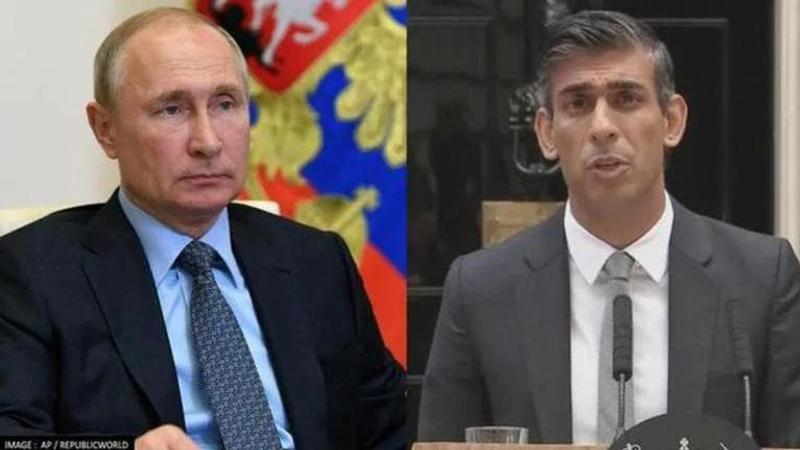Published 20:30 IST, December 11th 2022
UK says peace talks with Putin can't be a 'fig leaf' for Russia to rearm & recruit troops
UK's foreign secretary James Cleverly has said that peace talks cannot be a fig leaf that allows Russia time to rearm itself for the Russia Ukraine war.

UK's foreign secretary James Cleverly has said that peace talks regarding the Russia-Ukraine war cannot be a "fig leaf" that will allow Russia time to rearm itself and recruit more soldiers. Speaking to Sky News, UK's foreign secretary said that, "Any negotiations need to be real, they need to be meaningful, they can’t just be a fig leaf for Russian rearmament and further recruitment of soldiers". He also mentioned that he is not seeing any indications suggesting Moscow's willingness to start peace talks.
Cleverly further stated that he was not confident Russian President Vladimir Putin would enter into the peace talks with good faith and he also pointed out that the wide rhetoric from the Russian side was still confrontational. "I’m not really seeing anything coming from the Russian side that gives me confidence that Vladimir Putin is entering these talks in good faith. The wider rhetoric is still very confrontational," he said. The British foreign secretary said that the UK is in favour of peace talks "sooner rather than later". He, however, also stated that the final decision regarding when the peace talks should begin was Ukraine's decision.
In a separate interview to BBC, Cleverly said that NATO is a defensive alliance, adding that the bloc has never threatened Russia and is not threatening Russia now either. Stressing that it is Russia who is the aggressor, he pointed out how it was Putin who was talking like an imperialist by evoking Russia's historical empire. He also said that Russian forces should be held accountable for the atrocities they are reportedly commiting in Moscow.
Do nations use peace talks to rearm themselves?
It is not uncommon for nations to use peace talks or negotiations as a cover or pretext for continuing or escalating their military activities. In some cases, a nation may engage in peace talks as a way to gain time or strategic advantage, while secretly continuing to build up its military forces or prepare for future hostilities. For example, during the Cold War, the United States engaged in negotiations with the Soviet Union over arms control and disarmament, such as the Strategic Arms Limitation Talks (SALT) and the Intermediate-Range Nuclear Forces (INF) Treaty. While the US pursued these negotiations and made some concessions, it also continued to develop and deploy new weapons systems, such as the MX missile and the B-1 bomber.
The Soviet Union too used peace talks and negotiations with the United States and its allies as a way to divert attention from its military activities and expansionism. In particular, the Soviet Union used arms control negotiations, such as the Strategic Arms Limitation Talks (SALT), as a way to negotiate concessions from the US while continuing to develop and deploy new weapons systems. North Korea has a long history of engaging in negotiations with the United States and its allies over its nuclear weapons program, while simultaneously continuing to develop and test nuclear weapons and ballistic missiles. Pyongyang has used the prospect of peace talks and disarmament as a way to gain concessions and economic assistance from the international community, while secretly advancing its nuclear capabilities.
Updated 20:30 IST, December 11th 2022




